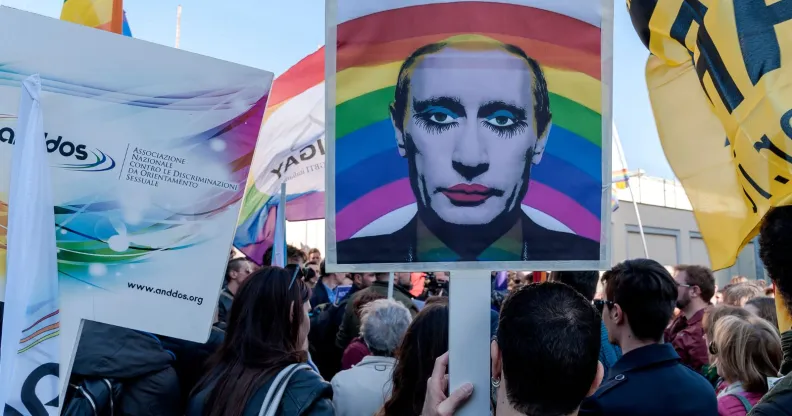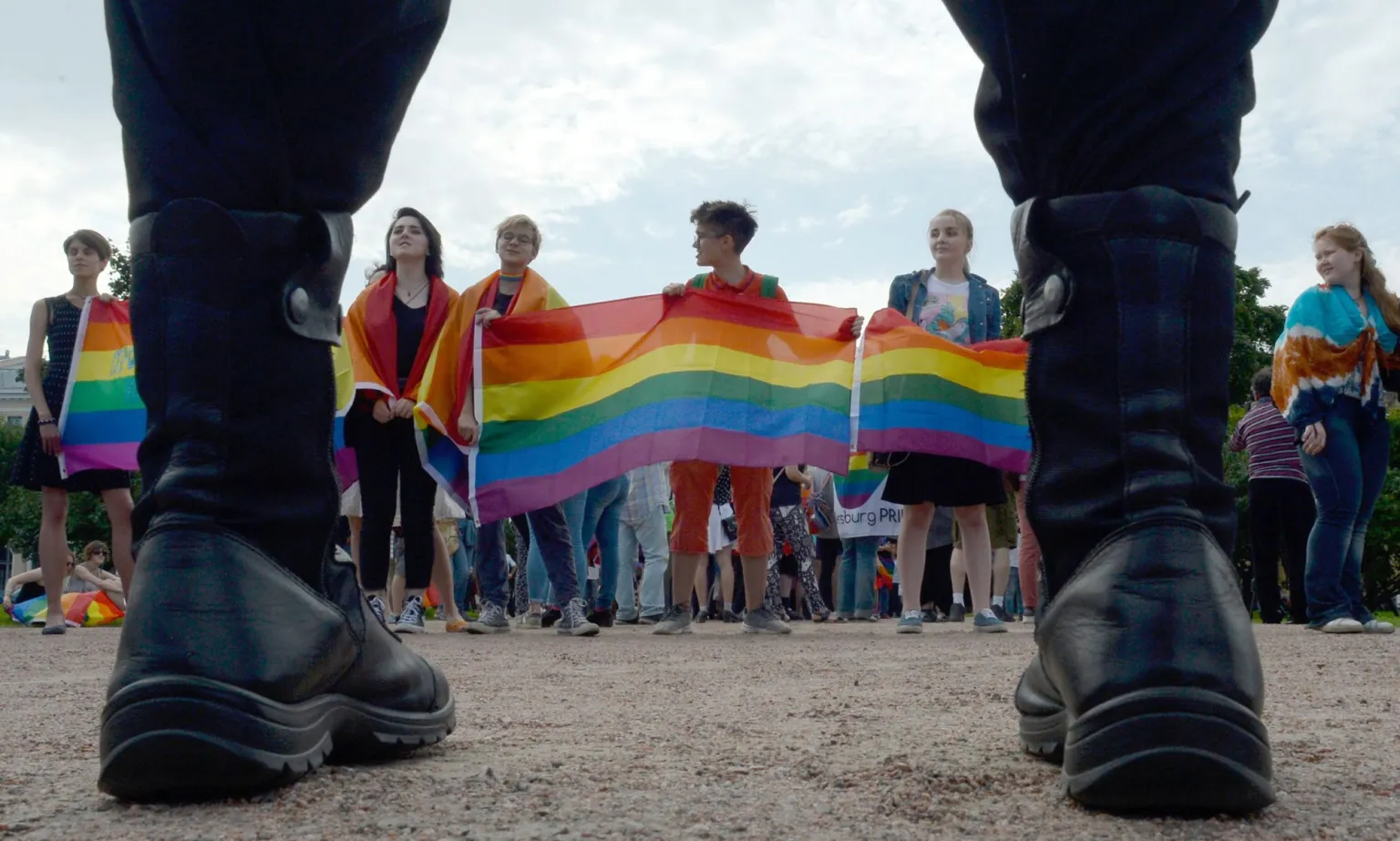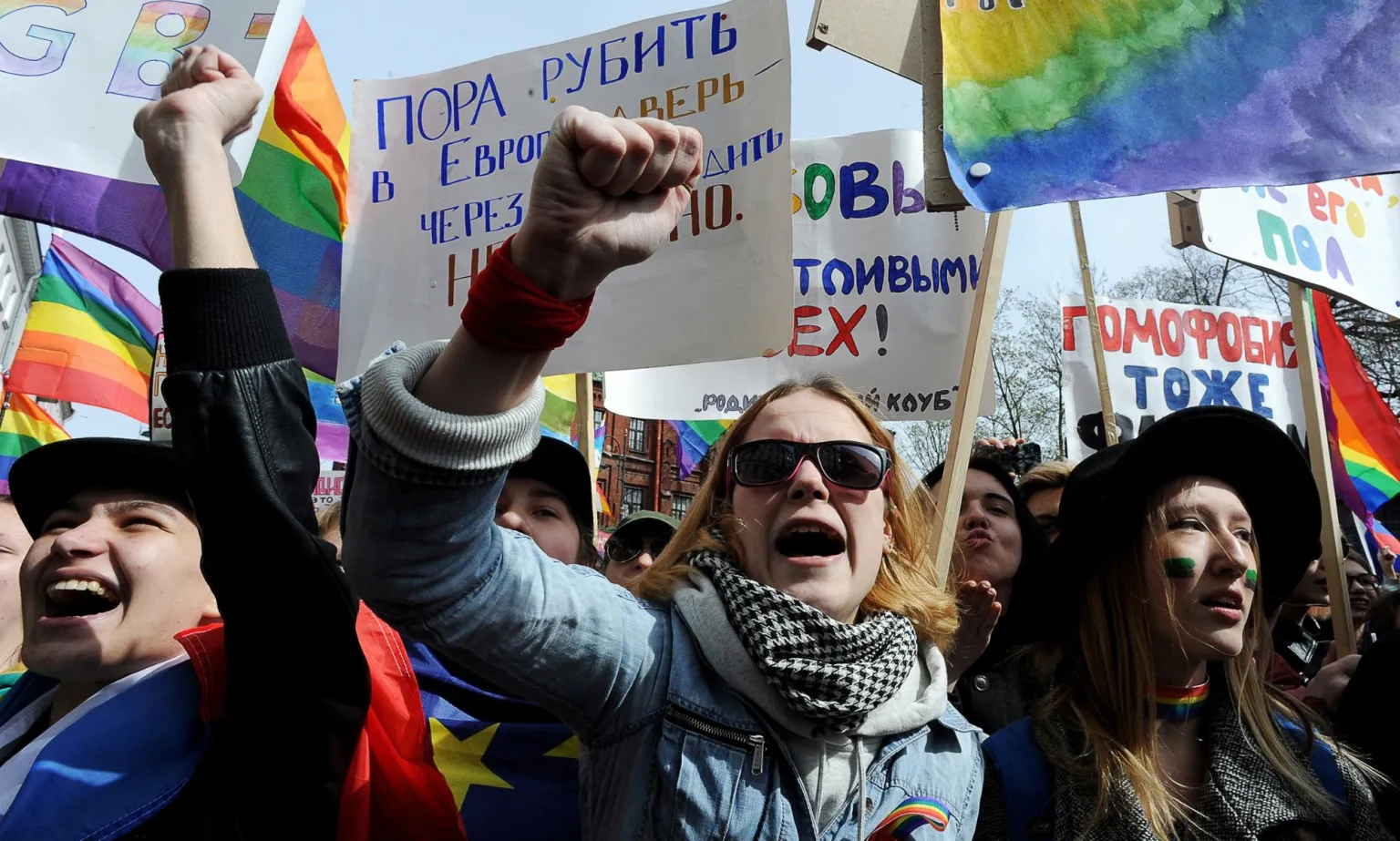Queer Russian activists won’t give up their fight: ‘We’ll keep making LGBTQ+ propaganda’
It’s been two months since Vladimir Putin signed an expanded LGBTQ+ ‘propaganda’ ban into law, and its effects are already being seen.

The new legislation, signed on 5 December, significantly broadens the scope of the 2013 bill that outlawed LGBTQ-related information being shared with minors in media, advertising, movies or on social media, expanding it to all ages.
Russian officials have cast the repression of queer people as part of its struggle to protect the country from ‘Western influence’. As well as the expanded LGBTQ+ propaganda law, which was backed by Russia’s parliament, the Duma, an oppressive new “foreign agents” law is also being used to crack down on free speech.
Aleksandr Voronov, executive director of LGBTQ+ group Coming Out, tells PinkNews how many Russian LGBTQ+ people fled the country “even before the war and all this legislation”.

Now, even more are choosing to flee – but there remains a “mind-blowing number” of LGBTQ+ organisations that “still work inside of Russia, across all of the country”.
Many still in the country operate “silently”, Voronov says. For many, especially those living outside major cities like Moscow and Saint Petersburg they act as lifelines, offering assistance and making people “feel that you are not alone”.
Other groups, like Coming Out, have decided to “leave the country and speak at loud as possible”.
Voronov fled Russia earlier this year amid increased persecution and concerns “human rights defenders, foreign agents, traitors of traditional values” and people opposed to the country’s war efforts could be blamed for Russia losing the Ukraine war.
Coming Out provides free psychological and legal support for queer Russians and their relatives, and works to share information and resources among other things.
Voronov says the number of requests they received for psychological and legal support at the end of 2022 had increased by up to three times compared to the year prior.
Queer people in Russia “never know in what direction things will develop in the future”, he says, but there’s “less and less hope” that changes will be positive.
Russia decriminalised homosexuality in 1993. Same-sex unions have never been permitted, but in 2020 the constitution was amended to make this explicit – an action declared a human rights violation by the European Court of Human Rights.

Many fear the Kremlin could roll back LGBTQ+ rights even further – Putin has previously said Russia must “cleanse” itself of LGBTQ+ identities and attacked the US and NATO for “imposing perversions on children”.
“We see that Russian authorities look more to the East than the West,” Voronov says, noting that many countries in Asia still outlaw same-sex relations.
“There is always a fear that Russia can go this way, and you never know what’s next.”
It’s still unclear exactly how the expanded ‘LGBTQ+ propaganda’ law will be enforced, he adds, as it doesn’t thoroughly lay out what the government deems to be ‘propaganda’.
Voronov says that amid the uncertainty, people are already beginning to self-censor. In November, Acceptance – a support centre for LGBTQ+ Russians in the southern city of Kazan – announced on social media it would cease operations in light of the “new law on the complete ban on LGBT propaganda”.
“We see already that bookstores stopped selling literature with queer characters – and the law hasn’t been enforced yet,” he adds.
“In the near future, we will see a significant decrease of representation of LGBTQ+ people in culture, problems with access to information, and more and more stress in everyday life.”
Voronov and Coming Out are focused on providing that representation, regardless of what Putin says
“The government blames us for making propaganda,” he says. “Thanks for the idea. That’s what we will do.”

Comments are closed, but trackbacks and pingbacks are open.